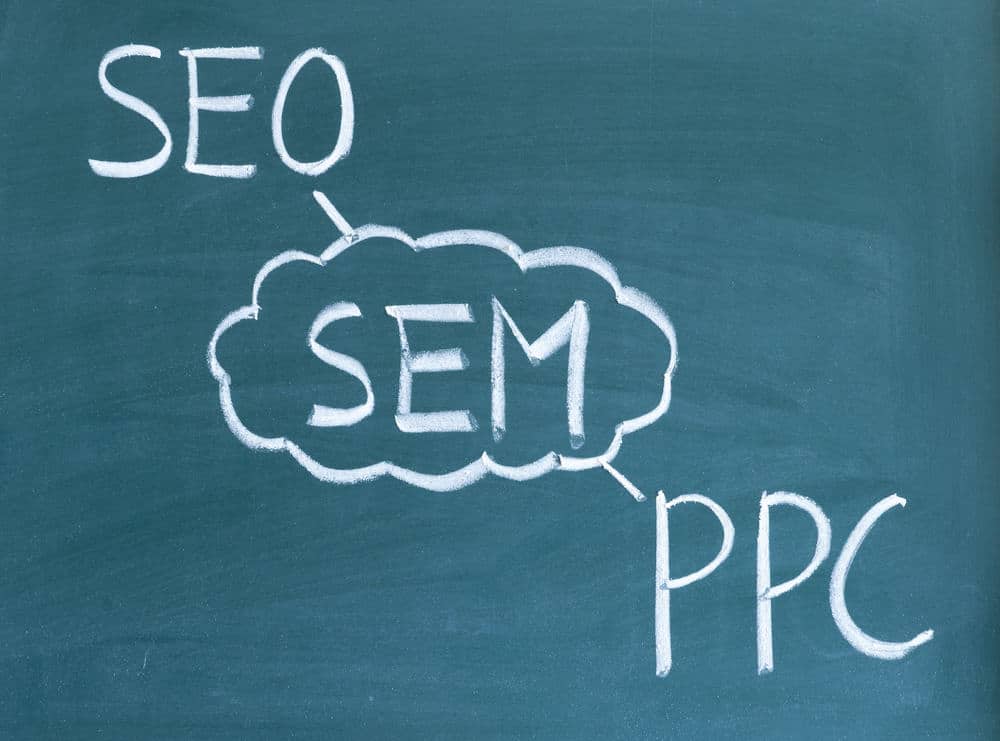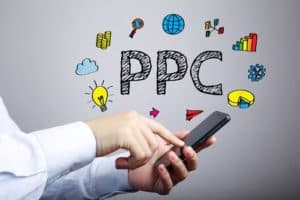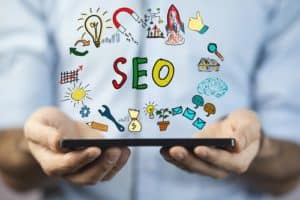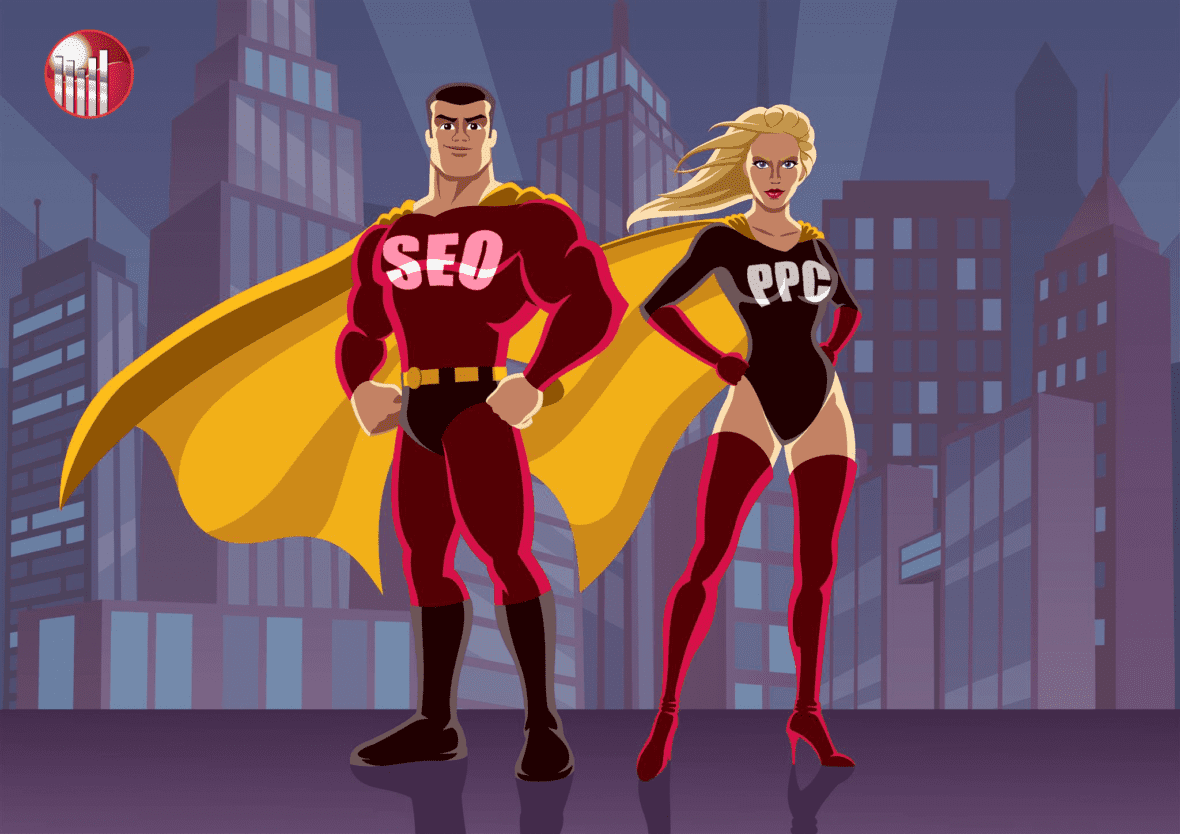Today, our industry is inundated with acronyms and marketers are not the only professionals expected to follow the closely along as these combinations of letters evolve and set expectations for business sustainability and growth. Business owners, finance managers, and social media gurus need to be just familiar as the employee sitting in an advertising chair.
SEO and PPC are two of the acronyms we hear tossed around frequently today. While most people have a grasp of the reflections- Search Engine Optimization (SEO) and Pay Per Click (PPC)- few can list the differences and separate uses of either.
We commonly receive requests from clients to break down the marketing’s trending terms and prescribe action to each. Today, we want to walk you through SEO and PPC. Let’s discuss how they vary, how each operates, and how to effectively use both in your marketing strategy.
Encourage employees of all fields to familiarize themselves with today’s terms- they’re evolving at a pace that requires all of us to stay in the know at all times.

What is PPC?
Pay Per Click (PPC) includes all paid efforts toward increasing search visibility. Although SEO arguably requires time and money as well, PPC includes directly paid tactics such as paid search ads, paid search advertising, both are very similar. Anytime a brand pays for targeted advertising on a search engine results page (SERP), they’ve engaged in PPC to boost traffic to their website’s home, landing and blog pages.
PPC is not as simple as paying for an advertisement. The copy must mirror current keyword trends in order to effectively reside on popular SERPs and further, to win searcher’s interest and click-through.
PPC includes the following efforts:

- Google AdWords: A keyword-focused ad service that allows advertisers to only pay when consumers actually click on the provided link.
- Targeted ad campaigns: Targeted campaigns reach a specific market, typically one defined by geographic location.
- Advertising: Setting, using and optimizing an advertising budget.
- Ad copy: Embedding trending and effective keywords in advertising copy.
- Ad groups: Running multiple ads that use different language and keywords based on predicted audience.
- Metrics: Paying for monitoring and analysis of impressions, clicks and click through rates are essential to the constant refining of advertising strategies.
What is SEO?
Search Engine Optimization (SEO) is a constantly evolving sphere because the algorithms set forth by search engines are constantly evolving to better cater to searchers’ needs and desires. Experts optimize websites for search engines in two ways: on-site and off-site.
Optimizing on-site includes any efforts that the viewer will see, including:
- Optimized meta data: Includes title tags, meta description, image tags, heading tags and incorporated key words. Meta data communicates both to the searcher and to the search engine.
- Page copy: Page copy is what your viewers will read (if they read). In order to impress visitors and rank well in search engines, the copy must be well-written and fluently threaded with you niche audience’s keywords.
- Loading times: Whether it is video loading times or page loading times, site visitors won’t wait more than a couple of seconds. Build a site that has the bandwidth for fast, quality load times.
- URLs: The keywords you choose to embed in your URLs affect the audience that is attracted and overall site traffic.
Optimizing off-site includes any efforts that the viewer will not see, including:
- Social sharing: Sharing links and content on your social channels that lead viewers to your website is an awesome way to gain more traffic and gather multiple audiences in one spot.
- Backlinks: This is one crucial effort in off-site SEO. When and wherever it is possible to have an outside website host a link to any one of your web pages, request away. Inbound links drive significant traffic to your site.
SEO vs PPC
Search Engine Optimization (SEO) refers to any efforts (mainly organic) used to boost a website’s ranking in search engines, while Pay Per Click (PPC) refers specifically to paid marketing efforts online, such as paid search and advertisements.
SEO > PPC
- SEO provides more sustainable results – SEO is a long term investment that provides results that will last over a period of time, even if you’ve stopped with your SEO efforts. On the other hand, PPC provides results as long as the campaign is running.
- SEO is more cost effective – SEO is a more cost effective way to produce results. This does not mean that it is free since it does require time and dedication. Of course, it also depends on how fast do you want to see the results. By investing more money into Off Site SEO strategies, you could fast track your efforts.
- Provides better quality leads – Search engines try and provide their users with best possible results. If you manage to become that result, you will generate more leads. Compared to PPC where you are basically paying for advertising space, SEO will bring users to your website that actually want to be there.
- No Ad blindness – We live in an online world that is getting oversaturated with ads. This caused us to develop something called Ad blindness. Users instinctively avoid ads and focus on organic results.
PPC > SEO
- Immediate results – PPC will provide you with almost instant return on investment. Once you have set up your campaign correctly, you will be able to measure exactly how much money comes in and how much comes out.
- Narrow targeting – PPC lets you target specific user groups. You can target the exact age, location, etc and make sure that you are getting traffic, leads, and conversions from your desired user group.
- Expand your reach – PPC lets you advertise on other websites. This is a huge advantage since you can easily determine where your audience is at and serve them targeted ads in order to draw them to your own website.
All in all, both of these marketing techniques have their own strengths. You might be using PPC to jump start your campaign, and SEO in order to ensure its longevity.
Better together?
SEO and PPC can be thought of as SEO’s role within the larger umbrella of PPC. Although not all SEO tactics are paid for directly, the building of SEO requires countless hours, thoughtful research and an ongoing refinement of moving pieces.
The difference between SEO and PPC comes down to advertising and optimizing website back-ends. Both are essential to strong web presences and high traffic volume and the two work in tandem to reach the most effective results. At Executive Digital, we recommend fueling your website with SEO and ramping up exposure through PPC.
Benefits of using SEO and PPC:
- Cost effective, SEO naturally builds traffic while PPC directs it, doubling volume
- Dual research on keywords for on-site copy and targeted ads
- Easily tracked, quantifiable results
- High consumer conversions
- Improved customer experience
- Improved traffic
- Increased brand awareness
- Increased ROI
- Long-term impact on SERPs
- Loyal consumer generation
- Opportunity to distinguish brand amongst competition
If your marketing strategy does not already employ PPC and SEO, we encourage you to reach out to our team of media experts to work together on building a strategy that boosts your online presence. Executive Digital specializes in digital marketing, so we make it easy for you to understand the concepts and how to use them in business development. Contact our team today to get started on strengthening your marketing plans and working toward your highest business goals.

